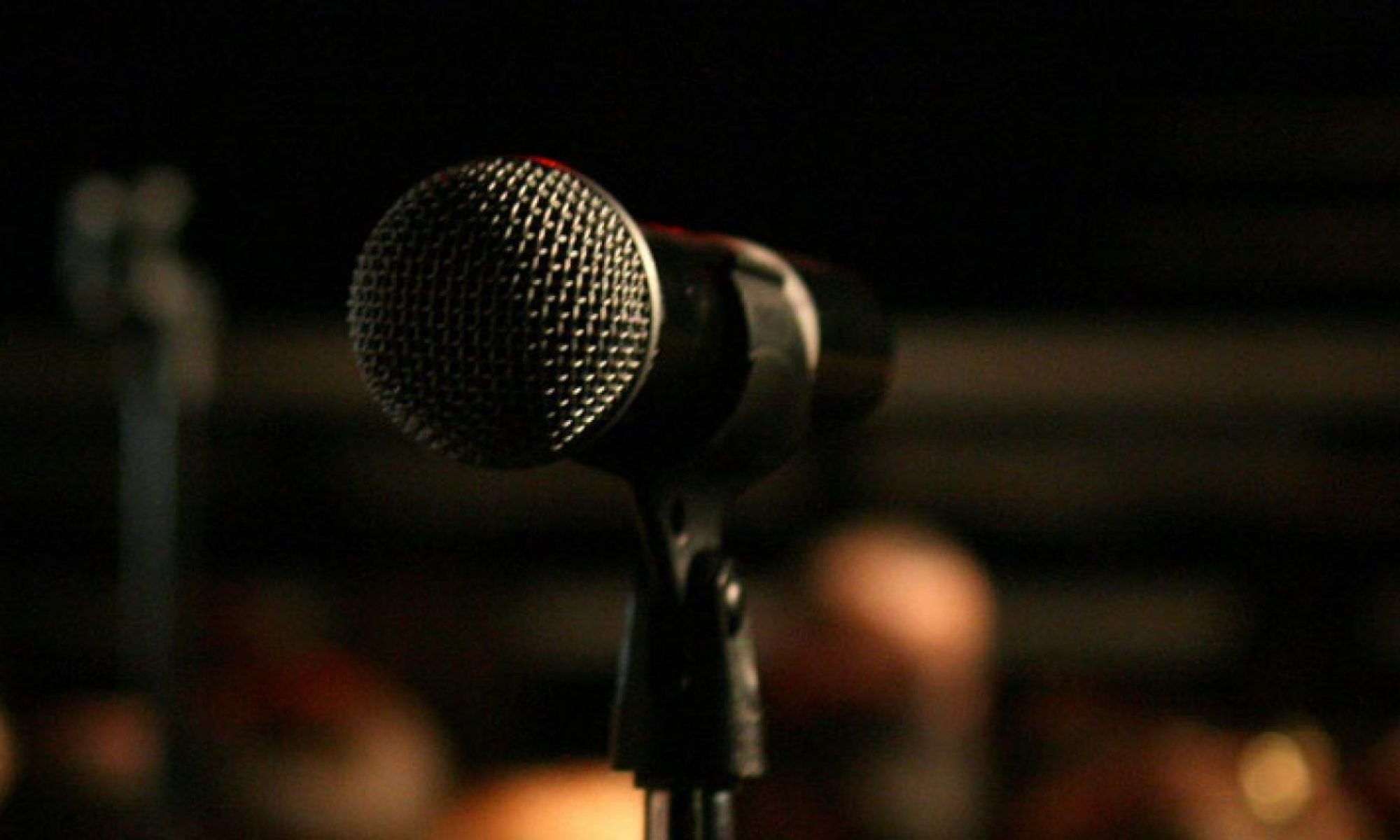You’re performing your prepared jokes, when all of a sudden, someone in the audience yells something out. What do you?!? Oh, and you have one second to decide, no pressure!
First, make sure the comment isn’t just someone muttering in the front row that nobody else heard but you, as you can often ignore such minor interruptions.
Next, repeat what they said into the microphone. This gives your brain an extra second or two to assess the situation and makes sure everyone in the audience heard what was said, which increases the odds that your response will get a big room laugh.
Next, quickly figure out what kind of “audience member yelling things out” interruption it is you’re dealing with, then respond accordingly.
Heckler Identification 101 – Types of interruptions
- Someone responds to your jokes by saying something out loud that they think is helpful to the joke (but almost always isn’t)
Acknowledge their suggestion and either riff off of it, say something witty or show how it’s unfunny and sarcastically thank them - Someone doesn’t realize your statement or question was rhetorical and that they weren’t supposed to actually answer it
This is similar to #1. After you acknowledge the comment, start taking shorter pauses than usual between setup lines so they don’t jump in again. Some audiences are more A.D.D. than others and can’t handle any silence, especially if it’s right after a fake question. - Someone says something along the lines of “Jesus Christ” or “Oh God” when you do an edgier joke
You can either smile and laugh extra without really addressing it. Or you can say something along the lines of “it’s gonna get worse.” Or admit “You’re right, that’s a rough one” and then make your next joke even edgier. Showing the audience you understand you’re crossing the line, and then crossing it even more can cause a bigger laugh because going further after apologizing isn’t expected. - Someone is drunk and just yelling out sounds or words that don’t make any sense
Admit to being genuinely confused about the sound, maybe even mimic the sound, but don’t give them time to respond. If they do respond, it’s usually so nonsensical you can just laugh or stare at them and then move on without another response. You can always make a comment about them needing another drink too. The key here is to get back to your material ASAP. The audience tends to tolerate these kinds of heckles less than any other, so you can ignore it after the first time and talk over them. - Someone yells out, “You suck”, “I’m funnier than you”, etc.
This is what most people think of when you mention hecklers. These are also the least common ones. In this case, it matters if the rest of the audience has been laughing and is with you, or if they’ve all turned on you. Assuming the rest of the audience likes you, try to agree with the heckler while one-upping them. Don’t resort to insulting them unless they’ve yelled out more than once.
More Heckling Factors
- Don’t get too mean, too quick
If you acknowledge the situation and respond with something that isn’t too mean the first time, they’ll usually stop. A lot of times the person (and rest of the audience) thinks they’re just being helpful (situations #1 and #2 above) so they don’t understand why you went from likeable to jerk.
If you don’t have a witty in-the-moment response something like “Thank you for your opinion sir, I can take it from here” or “Ok, no more alcohol for that one” usually works for the first interruption.
Don’t get mean, call the audience member names or tell them to shut up until they interrupt for a third time. And make sure the rest of the audience is against them at that point. - Ignoring the problem makes it worse
If you ignore the first comment, then they’ll almost certainly say something else. Plus the audience starts wondering why you haven’t responded to the comment and while they’re thinking about that, they stop listening to you and your next joke.
If you respond to the interruption and the audience member says something again, try to not respond directly. Stare at them for a second or two and then say “annnnnd back to me” or just a “that’s nice.” - If the audience member or audience in general has already been chatty before you
Some audiences are just talkative and want you to talk and interact with them instead of just listening to you do material. This isn’t really “heckling,” this is crowd work, even if you’re not the one who decided to start it. When you’re trying to work on new material having to spend time talking to the audience can get annoying but you just gotta go with it. It’s also important to make it seem like the interruptions are “fun” and don’t bother you. - If the comedians before you were doing so much crowd work that the audience thinks it’s supposed to be a back-and-forth
Sometimes the comeidans before you talk to the crowd so much, the audience starts chatting with all performers, even those who just want to do material. In such an instance, you want to be extra nice when responding, as this is how they were trained and will be confused if you verbally attack them. - Use the improv rule of “yes and”
Agree with whatever the audience member says and then add some additional information. This usually works because if you seem defensive, you’ve lost. Even something like, “You suck!” can be turned into “Yes, I do suck. And you can’t afford me. Why are you propositioning me anyway?”
In Conclusion
Heckling is just like with the rest of stand-up, you best learn by doing it. It still helps to read, ask questions and be prepared, but you need the actual game reps.

